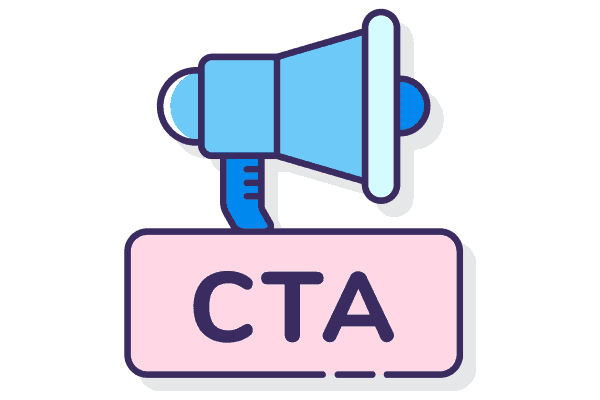Which of the Following Tips Makes for Good Content Writing? (2023)
Understanding the Role of Content Writing
Have you ever wondered what makes content writing so crucial in digital marketing? It’s all about shaping your brand’s voice and identity. Skillful writers can craft engaging articles that draw in readers and stimulate interaction. It’s a powerful tool, driving organic traffic to web pages through savvy search engine optimization strategies.

Which of the Following Tips Makes for Good Content Writing? Good digital marketing isn’t just about getting eyeballs on your text or blog posts. It’s a pivotal part of the sales funnel, encouraging conversions and boosting sales.
Whether it’s an article for online reading, a Fiverr content writing test, or mastering search engine optimization, mastering different content formats is critical. So next time you’re browsing through Fiverr content or working on your creation, remember – good content writing skills aren’t just nice to have for writers; they’re essential!
Mastering Industry-Specific Writing Skills
Getting the Jargon Right
Content writers should understand industry jargon and terminology as part of their writing process. It’s like learning a new language for each industry you write for, enhancing the connection with your readers.
A word certification or passing a skills test can help prove your mastery of this skill, boosting your networking potential.
Adapting Your Style
Adapting to different content formats and writing styles as content writers is crucial. A business report has a different tone from an article or blog post on the latest fashion trends. Reading, courses, study materials, and practice can help hone these writing skills.
Keeping Up With Trends
Staying updated with industry trends is essential, especially when crafting blog posts or articles for your readers. For instance, if you’re writing for the tech sector, knowing what’s trending in AI or blockchain can give your content an edge.
Regular networking, reading, and research skills are essential here.

Source Validation
Lastly, using credible sources for information validation ensures accuracy in your SEO article content.
This could involve leveraging your research skills to check facts against trusted journals or websites while being mindful of copyright laws. Remember, the Google E-A-T (Expertise, Authoritativeness, Trustworthiness) concept also applies here!
To wrap up:
- Understand the jargon
- Adapt your style
- Keep up with trends
- Validate your sources
Master these skills and words, and you’ll ace any topic test in content writing for writers!
Research Significance in Quality Content
Quality SEO content and copyright research go hand in hand. Why? Here’s the scoop on this topic: it works.
- Accuracy Matters: Ever googled something only to find outdated info? Frustrating, right? Research keeps your content fresh as a daisy, providing readers with the latest and greatest information. It’s like the difference between driving a brand-new car and one that’s held together with duct tape.
- Credibility is Key: Want to be seen as an authority? Then you have to do your homework. Thorough research boosts your credibility faster than a rocket on launch day. It’s all about keyword prominence – using the right keywords at the right frequency. Think of it like this: You wouldn’t trust a mechanic who didn’t know his wrench from his screwdriver, would you?
- Data-driven Evidence: Nothing says ‘I know my stuff’ quite like data-driven evidence. It’s like having receipts for every claim you make! Your arguments will pack more punch than a heavyweight champion.
- Filling Content Gaps: With some savvy research techniques, you can spot gaps in existing content, like a hawk spotting its prey from miles away. This leads to unique creations that stand out from the crowd – like finding an untouched donut in a clinic waiting room!
Here are some quick tips:
- Use the Google search box for keyword research.
- Consider term keyword prominence while writing.
- Always regard the value of up-to-date information.
- Lead with facts and data.
- Respect all aspects of Google E-A-T concept (Expertise, Authoritativeness, Trustworthiness) in web content creation. Ensure your content writing skills respect copyright laws.
- Price doesn’t always indicate the quality of copyrighted content; the same applies to the length of words in a skills test.
So there you have it – why research is highly significant in creating quality content with copyright considerations, honing your writing skills, and choosing the right words!
Strategies for Engaging and Compelling Content
Storytelling Techniques

Breathe life into your blog posts with storytelling techniques, an essential content writing skill. It’s about crafting a narrative around your topic, making it relatable to your target audience. For instance, use anecdotes or personal experiences to illustrate points.
This is an essential part of content creation that all content writers should master. You could even consider taking a Fiverr content writing test to assess your proficiency.
Multimedia Elements
Images and videos can make your copyrighted content pop on any web page. They provide visual breaks in long writing paragraphs and offer additional information that writers might not capture.
An image of a product or a tutorial video in a blog post can significantly enhance the user experience.
Content Structure
For easy readability of your writing, break down your words into copyright-friendly subheadings, bullet points, and short sentences or paragraphs. Here are some tips.
- Make the headline catchy.
- Use bullet points to list down key points
- Keep paragraphs short and sweet
- Subheadings should summarize the passage below them
This structure aids content writers in presenting words on the web, allowing readers to skim through the page quickly while still getting the answer or gist of the information.
Call-to-Action Statements

Drive user behavior with effective call-to-action statements in your content writing test. These could be links inviting readers to read more blog posts by content writers, follow you on social media for more Fiverr content, or check out a specific product from a content creator.
Remember, each call-to-action should offer a viable solution to your audience, for example.
- “Seeking more content writing tips? Test our words in other blog posts crafted by content writers.”
- “Follow us on social media for daily updates.”
- “Try our product today.
SEO Incorporation in Content Strategy

Keywords and Text
So, you’re working on your digital marketing masterpiece, perhaps some content writing. You have to integrate those relevant keywords naturally into the text. No stuffing them in like a Thanksgiving turkey!
It’s all about making it flow like a sweet symphony. For instance, if “content writers” or “sentences” is your keyword, don’t just randomly shove it in there.
Make it part of a sentence that makes sense. Or even a test to see how well these keywords can be incorporated.
Meta Descriptions and Title Tags
Next up on our content writing hit list is optimizing meta descriptions and title tags. Think of these as your test or sneak peek for what’s coming up in the search engine show. Make them catchy but clear about what’s inside when someone hits that URL.
Each sentence should be a trailer, using the right words to hint at what’s inside.
Search Intent
Then we have search intent – figuring out why someone would type words or a sentence into a search box. Are they testing their writing? Looking for information? Wanting to buy something? Or maybe they’re just killing time with a writing test? Understanding this can help you craft content topics that hit the mark.
Mobile-Friendly Design
Lastly, ensure a mobile-friendly design for better ranking with those pesky search engines. Nobody wants to squint at their screen or endlessly scroll sideways because your content doesn’t fit properly!
Please keep your words clean and straightforward, so even folks on their phones can enjoy it without hiccups. Remember to test your writing to ensure it’s user-friendly.
And there you have it – SEO incorporation in the writing of content strategy boiled down to its essence, all in the following words and sentences!
Evaluating Your Content Writing Impact
Track and Measure Metrics
You’ve got a blog, and you’re writing posts, but do you know the impact of your words? Check metrics like bounce rate, time on page, and conversion rate. These test answers show whether the sentence structure in your content has wit or is a problem. Always consider the following points while posting.
- Bounce Rate: High bounce rate? Change is needed.
- Content Time on Page: If readers stay longer, engrossed in your writing and words, you’re crafting good sentences.
- Conversion Rate: More conversions mean more successful posts.
Social Shares Analysis
Shares show how engaging your writing is. More shares, more engagement. It’s as simple as choosing the right words and following a sentence structure as clear-cut as ii and iv in Roman numerals.
Monitor Keyword Rankings
Have you posted your content on the blog? Cool! Now monitor keyword rankings in your writing. See changes in the following rankings to understand the impact of your words in the post.
A/B Testing for Optimization
Have you ever tried A/B testing for your content? Please do it for writing headlines or CTAs (calls to action). Test different versions of words; feedback will tell which works better in the following tests.

Remember:
- Make two versions (A and B).
- Share both versions with different groups.
- Analyze the results.
- Implement changes based on feedback.
Evaluating content writing isn’t just about creating posts with impactful words; it’s about ensuring they’re following a course to make an impact!
Concluding Essential Good Content Tips
Mastering industry-specific writing skills, understanding the significance of quality research, and crafting engaging and compelling content with the right words are all parts of the game. Integrating SEO strategies and evaluating your content’s impact following industry standards are also crucial.
The key is to keep it simple yet informative. Use a conversational tone with a mix of unique sentence structures and colloquial language to make your content relatable.
Your content should reflect Google’s E-A-T concept (Expertise, Authoritativeness, Trustworthiness). Show off your expertise through stats or case studies, effectively using words and writing to convey your knowledge. Prove your authority with social proof, following the best practices in your field. Build trust by being consistent in delivering valuable content.
Don’t forget to evaluate your writing work. It’s not just about crafting good content with the right words but also about how this content affects your audience and business goals, following your strategic plan.
Now that you’ve got these tips for writing, it’s time to implement them in your content! Remember, following these words closely, practice makes perfect!
Final Thoughts
Content writing is a skill that requires tact, focus, and a keen understanding of the audience. A good content writer knows how to keep their reader’s attention, maintain the brand voice throughout the piece, and deliver a message that matters.
They’re often the unsung heroes behind great content on web pages, online content platforms, and even printed merchandise. Below are some tips that can help writers create good web content.
- Understanding Your Specific Audience: Knowing your reader is vital to write effectively. For example, the content tailored for a group of school girls would differ from content designed for professional photographers or doctors. The correct combination of tone, language, and subject matter will ensure that your content appeals to the right audience.
- Using the Active Voice: An often overlooked significant mistake in content writing is the overuse of passive voice. For example, consider the following sentence: “Carl failed the final examination.” This is in passive voice. A more engaging, active voice version of this would be: “Carl failed the final examination.” The active voice generally makes your statement more substantial and more direct.
- Ensure Correct Spelling and Grammar: Incorrect spelling can drastically change the meaning of your content. Misspelled words, incorrect punctuation, or incomplete sentences can confuse readers and tarnish your reputation as a reliable writer.
- Avoiding Copyright Infringement: A good content writer respects the exclusive rights of copyright holders. Using a professional photographer’s image without permission or incorrectly using someone else’s copyrighted material can lead to legal issues related to copyright infringement. Always check the correct options for using copyrighted material, and when in doubt, seek legal advice.
- Using Hooking Introduction: An anecdotal hook or an interesting introductory statement can capture the reader’s attention from the get-go. For example, if you’re writing about illegal immigration, you could start with a real-life story or situation to draw readers in.
- Focus on SEO: Using the correct set of long-tail keywords, anchor texts, and word placement can boost your content’s visibility on search engines. This is a key factor in online content writing, especially if you want to increase webpage or blog traffic.
- Proofreading: Before considering your work as the outcome, it is crucial to read through for any errors or missing words. One good tip is to read the content aloud; it can help you catch mistakes you may miss when reading silently.
- Stay Consistent: It’s vital to stay true to the brand voice throughout your content. If your brand is serious and professional, it wouldn’t be appropriate to suddenly adopt an informal, conversational tone.
- Include a Strong Call to Action: At the end of your content, you should always include a call to action (CTA). This gives your readers a direction after they’ve finished reading. Whether it’s “Visit our eBay store,” “Sign up for our next week’s skill test,” or “Join our discussion on illegal immigration,” a good CTA gives your content purpose.
- Maintain Originality and Authenticity: Every content writer has a unique voice, and letting it shine through in your writing is essential. Even when dealing with topics written about extensively, your unique perspective can make your piece stand out from the works of your rivals.
Remember, there is no single correct answer in content writing. There are different types of content, from journal entries to how-to guides, each with its own set of rules. So, take a deep breath, focus, and write content that resonates with your readers.
After all, the best content doesn’t just fill a blank on a webpage; it informs, entertains, and leaves the reader wanting more.
FAQs – Which of the Following Tips Makes for Good Content Writing?
What does mastering industry-specific writing skills mean?
Content writing means profoundly understanding the language, terminology, trends, and issues relevant to a specific industry and following its evolution closely.
Why is research significant in quality content?
Research in writing provides factual information that adds credibility and value to your content, following strict guidelines.
How can I make my content engaging and compelling?
Use storytelling techniques in your writing, ask questions directly to readers within your content, or use interactive elements like polls or quizzes, following audience engagement trends.
What role does SEO play in my content strategy?
SEO helps improve search engine visibility of content, leading to increased traffic and conversions through effective writing.
How do I evaluate my content writing impact?
You can use metrics like engagement rate (likes, shares), conversion rate, or readers’ feedback to evaluate your content writing.
We’re reader-supported. We may earn an affiliate commission when you buy through links on our site.

Angus Robertson is an authority in online marketing, affiliate marketing, and Search Engine Optimization (SEO). With an innate passion for the digital world, he has spent the last two decades assisting businesses in amplifying their online presence and boosting profitability.







